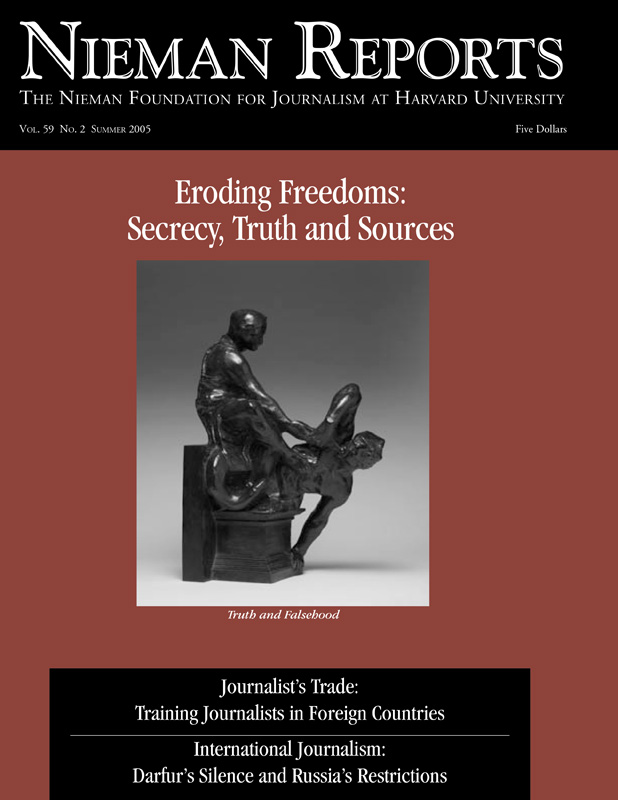RELATED ARTICLE
"Lessons in Teaching Foreign Journalists"
- Jerome AumenteDecades of experience in assisting journalists in foreign countries offer insights into what works best. In a book I am writing about training journalists, both in the United States and overseas, I focus on some preliminary lessons learned that have broad implications for international journalism training. What follows are examples of what appear to result in successful approaches to international training.
There is still much more research that needs to be done on what works and what fails in international training efforts, and this information needs to be shared with interested parties.
"Lessons in Teaching Foreign Journalists"
- Jerome AumenteDecades of experience in assisting journalists in foreign countries offer insights into what works best. In a book I am writing about training journalists, both in the United States and overseas, I focus on some preliminary lessons learned that have broad implications for international journalism training. What follows are examples of what appear to result in successful approaches to international training.
- Careful needs assessments before the projects are launched and close planning and consultation with the journalists, media associations, and universities in the host country.
- Building on an institutional base to sustain the program with indigenous trained journalists and educators who assume the job of long-term training and curriculum development.
- Consideration of many options for journalist training, including shorter-term workshops targeted to specific skills and subjects; creation of permanent media resource centers; cultural exchanges and visits to the United States; longer-term fellowships at universities, and increased opportunities for hands-on training.
- Longer-term fellowships at universities and news outlets are important and must be supported by a variety of funding.
- Universities in host nations should modernize their journalism curriculum for graduate and undergraduate study, support faculty exchanges and joint research, and partner with U.S. universities.
- Longer-term assignments, in which American journalists train counterparts in another nation for up to a year, and academic assignments for faculty through Fulbright grants that allow for a semester or full academic year overseas can be very effective.
- Better coordination of disparate programs to reduce duplication and better target resources, without stifling entrepreneurship.
- The Internet and other multimedia information sharing approaches should be increased to train journalists online.
- Programs need to travel beyond the capital centers and increase support to regional news organizations that are often overlooked or underrepresented.
There is still much more research that needs to be done on what works and what fails in international training efforts, and this information needs to be shared with interested parties.



